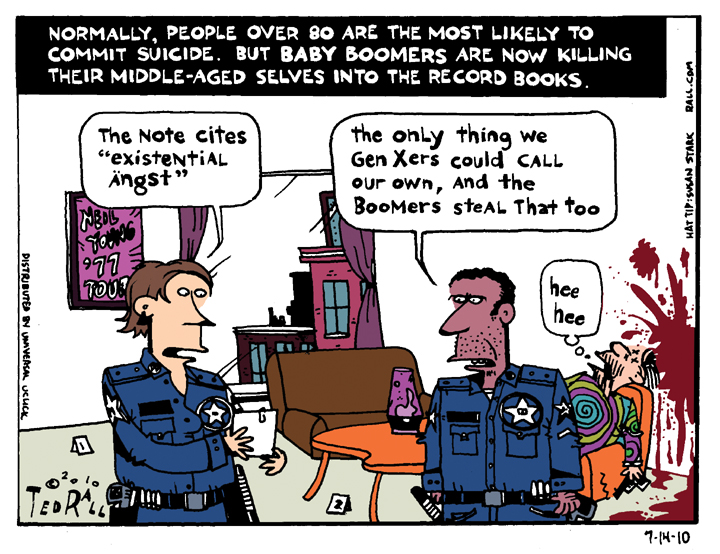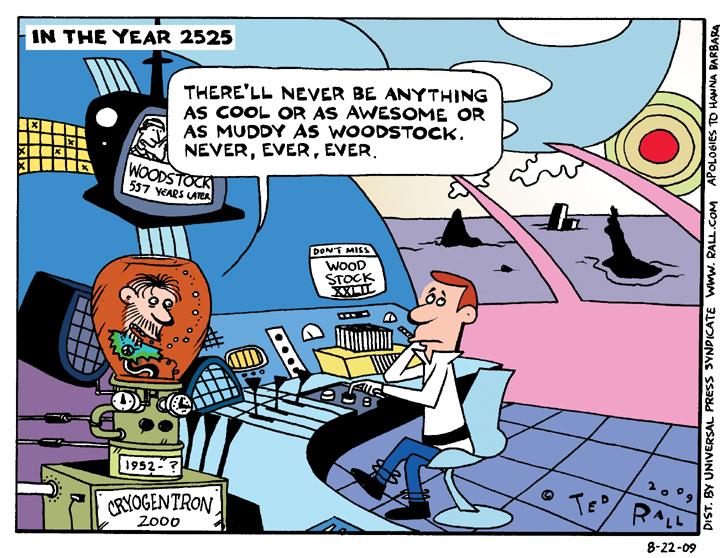How Sellouts Are Killing Growth
Are you a sellout?
If you came of age during the 1960s, whether or not to sell out was the existential question of your generation. Which to choose? Reckless youthful abandon or corporate “adult” obeisance? Films that dealt with that quandary, from “The Graduate” to Bertolucci’s “The Conformist” launched a million rap sessions, yet Baby Boomers are sure to leave this ethical dilemma unresolved.
My fellow travelers, we of unlucky, witty Generation X, have lived constrained careers with fewer options. Coupled with shrinking financial aid for college, the dismal job market made the choice between Wall Street and the Peace Corps depressingly simple. So we Gen Xers projected the debate onto practitioners of pop culture. Vanilla Ice, Milli Vanilli and The Knack, judged all commerce no art, were shunned. Artists who cashed in could be deemed genuine, but only if they took chances and/or made decisions that were bad for business: The Clash, Elvis Costello, RUN-DMC, Nirvana.
The booms have gotten shorter, the busts longer, the class divide deeper. The long-predicted winner-take-all society has arrived. A higher share of the income generated by each economic sector goes to a select few; others fight over scraps.
The cost of integrity and the payoff for selling out have risen. So fewer Americans are taking chances.
People are holding on to jobs they hate, making it harder for young people to find work. Businesses are hanging tight, picking safe bets (stuff that worked before) and slashing budgets for research and innovation. Banks and other would-be investors are hoarding cash. As a result, fewer entrepreneurs are starting new businesses.
Everyone makes concessions to the marketplace. I pride myself on ideological consistency and calling things as I see them even if offends my fans. But I rarely put vulgar words into my cartoons because newspaper and magazine editors won’t run them. (If I lived in, say, England, I wouldn’t have this problem.)
Charles Schulz was one of the richest men in America, his work licensed on billions of dollars of merchandise, yet comics fans lionize “Peanuts” because the strip itself is edgy and relatively uncompromising—more art than commerce.
“Right now, the pressures of the music industry encourage me to change the walk of my songs,” the Somali-Canadian musician K’naan wrote recently. “My lyrics should change, my label’s executives said; radio programmers avoid subjects too far from fun and self-absorption.”
It’s easy to tell K’naan to keep it real. But it’s not realistic.
Keeping it real doesn’t pay the rent.
Selling out does.
“Good work always finds success,” an old boss assured me. What a lie! The cutout bins of bookstores and CD stores (if you can find one) provide all the proof you need. People buy what advertising and publicists tell them to buy. If a cool author falls in the woods, she might make a sound—but no one will ever find her book at the front of the store, much less getting interviewed by Jon Stewart.
When artists rely on capitalist markets—hopelessly corrupt, governed by gatekeepers who distribute and promote vacuous apolitical pabulum over work that challenges conventional wisdom—the freedom to choose integrity over selling out is a fraud.
“If this was censorship, I thought, it was a new kind—one I had to do to myself,” K’naan continued. “The label wasn’t telling me what to do. No, it was just giving me choices and information about my audience.”
Make a living or starve. Or give up your dreams and silence yourself. Can anyone call that a real choice?
We see the same “choice” in politics. Senator Marco Rubio recently embarrassed himself twice, first by pandering to the idiot base of the Republican Party, then walking back his stance on creationism.
“Whether the Earth was created in seven days, or seven actual eras, I’m not sure we’ll ever be able to answer that. It’s one of the great mysteries,” he told GQ.
After a month of ridicule, Rubio acknowledged the existence of science: “[The age of the Earth] is at least 4.5 billion years old.”
Rubio explained his reasoning: “I just think in America we should have the freedom to teach our children whatever it is we believe. And that means teaching them science, but also parents have the right to teach them the theology and to reconcile those two things.”
Science isn’t reconcilable with faith. Rubio knows that. But he also knows what would happen to his presidential aspirations if he admitted the truth.
God is a lie.
If you believe in God, you are stupid.
If you think the earth is 6,000 years old, that humans and dinosaurs coexisted, and/or that climate change isn’t real or caused by people, you are an idiot.
Since many of my readers believe in God, the words above will cost me sales and clients. Optimists might argue that being forthright about my beliefs will attract at least as many new customers. But that’s not the way the world works.
Integrity means doing the right thing even—especially—when it hurts you. But you have to question the philosophical underpinnings—and the future—of a society that requires its leaders and artists to work at Starbucks or to act stupider than they really are in order to get elected or sell records or books or whatever. Taking chances—which includes causing outrage—is how civilization tests new ideas, and how it progresses.
Not that they let you say whatever you want at Starbucks.
(Ted Rall’s website is tedrall.com. The author of “The Book of Obama: How We Went From Hope and Change to the Age of Revolt,” he is working on a new book about the war in Afghanistan to be released in Fall 2013 by Farrar, Straus & Giroux.)
COPYRIGHT 2012 TED RALL


